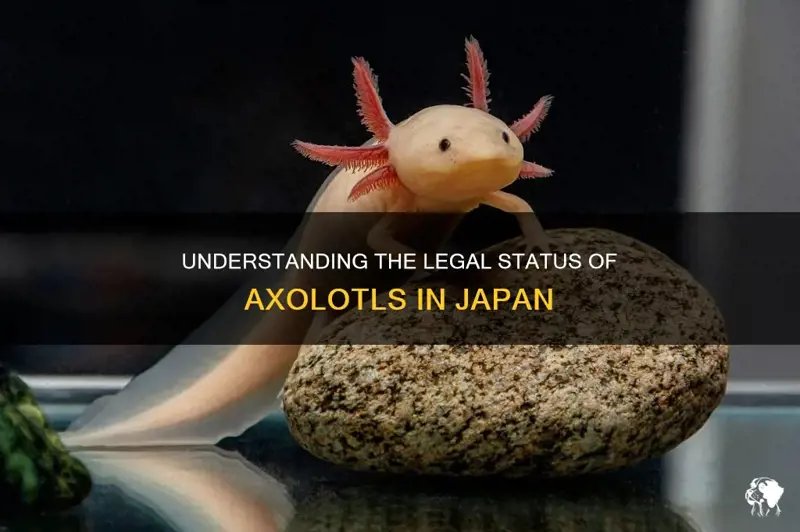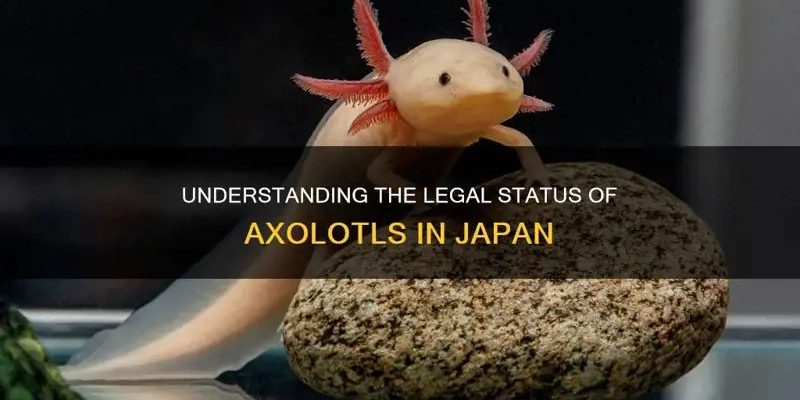
Understanding the legal status of these unique amphibians can feel a bit like navigating a maze. Different places have different rules, and sometimes the information can be contradictory. So, let’s break it down together over a cup of coffee, making it as simple as possible. We’ll explore where these fascinating creatures can reside legally and what you need to know if you’re thinking about bringing one into your home.
What Exactly Is an Axolotl?
To kick things off, let’s talk about what an axolotl actually is. Native to the ancient lakes of Mexico, these critters are often called “Mexican walking fish,” but they’re not fish at all! They’re a type of salamander that never quite makes it to adulthood, staying in their aquatic larval form for their entire lives. Imagine a tiny creature that looks like it’s perpetually in its youth, with cute external gills that flutter as they swim around.
If you’re thinking about getting an axolotl, you’re not alone—many people are drawn to their quirky looks and friendly demeanor. But before you rush out to adopt one, it’s important to make sure you’re on solid legal ground. So, what’s the scoop on their legality?
Why Legal Status Matters
You might be wondering why the legal status of axolotls is such a big deal. Well, here’s the thing: owning an animal isn’t just about having the space and the enthusiasm. Different countries and states have laws that protect certain species, especially those that are endangered or at risk.
For axolotls, their home environment is threatened, primarily due to habitat loss. As a result, many regions have specific regulations that dictate if you can own one as a pet. Violating these laws can lead to hefty fines, or worse, the confiscation of your beloved pet. Additionally, understanding the legal status can help you contribute positively to conservation efforts by ensuring you’re not inadvertently supporting illegal wildlife trade.
Where Are Axolotls Legal?
The legal status of axolotls varies widely depending on where you live. For example, in the United States, axolotls are legal to own in most states, including California, Texas, and New York. However, some states like Maine and New Jersey have restrictions or outright bans.
When you consider other countries, the rules can change again. In Canada, axolotls are generally legal, but specific provinces may have regulations in place. Meanwhile, in some European countries, they are classified as invasive species and are illegal to possess.
So, before you think about making any moves, check your local laws. It’s always better to be safe than sorry when it comes to legal issues.
How to Check Your Local Regulations
Finding out if axolotls are legal in your area doesn’t have to be a headache. Here’s a simple guide to help you navigate through the red tape:
- Start with a quick Google search: Type in “are axolotls legal in [your state or country].” This can lead you to relevant resources.
- Consult local wildlife agencies: Many countries have wildlife departments that list the regulations for pet ownership.
- Join online forums: There are plenty of axolotl enthusiast communities where members often share up-to-date information about laws.
If you find yourself in a particular state or region that prohibits axolotls, consider exploring alternatives. There are other pet amphibians that might fit the bill and are easier to legally own.
What to Do If Axolotls Are Illegal in Your Area
If you live somewhere where axolotls are prohibited, you might feel disappointed. But don’t fret! There are steps you can take to honor your love for these quirky creatures without breaking the law:
1. Learn and Educate: Use this opportunity to educate yourself about ongoing conservation efforts for axolotls and other endangered species. Understanding their plight can be incredibly rewarding.
2. Volunteer: Look for organizations that focus on amphibian conservation. Many of these groups welcome volunteers who are eager to help in various ways, from fundraising to hands-on work in their habitats.
3. Consider Alternative Pets: If you’re set on having an amphibian, explore legal alternatives like frogs or newts, which might also bring joy to your life.
Remember, respecting local laws is a way to support conservation while also ensuring that animal welfare is prioritized.
Tips for Owning Axolotls Legally
If you’re lucky enough to live in a place where axolotls are legal, congratulations! Here are some tips to help you care for your new pet while staying within legal boundaries:
- Do Your Research: Understand what your axolotl needs in terms of tank size, water quality, and temperature. A healthy axolotl is a happy axolotl!
- Purchase from Reputable Sources: Always buy your axolotl from licensed breeders or pet stores. This ensures you’re not supporting illegal wildlife trades.
- Stay Informed: Regulations can change, so keep yourself updated on any legal shifts regarding axolotl ownership in your area.
By staying informed and responsible, you can enjoy the companionship of an axolotl while helping to protect their population in the wild.
Navigating the legal landscape of pet ownership can be tricky, especially when it comes to unique animals like axolotls. By understanding your local laws, doing your homework, and making responsible choices, you can enjoy the wonderful experience of having an axolotl as a pet. Always remember to respect the regulations in place for their protection, and take the time to learn about their conservation status.
Whether you’re dreaming of having an axolotl or are already a proud owner, a little knowledge goes a long way. After all, these charming creatures deserve our respect and care, both in our homes and in their natural habitats!

